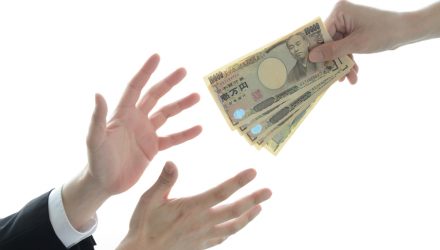Japanese stocks have long been hailed as less expensive than their U.S. counterparts, and while that hasn’t been enough to lure many U.S. investors to stocks in Asia’s second-largest economy, the worm could be turning in favor of Japanese equities.
In fact, a case can be made that the stars are aligning for the WisdomTree Japan Hedged Equity Fund (NYSEArca: DXJ). With the U.S. dollar flirting with 20-year highs against the Japanese yen, the benefits of DXJ’s currency hedging are readily apparent. The exchange traded fund is easily outpacing both the S&P 500 and the unhedged MSCI Japan Index this year.
“Measured in local currency terms, Japan was the best-performing MSCI regional market in March, up 4.9%. In dollar terms, Japan was down 50 bps due to its weak currency,” writes WisdomTree Global Chief Investment Officer Jeremy Schwartz. “This goes to a point we often make: Currency changes do not need to impact your foreign return, and you can target that local market return by hedging your currency risk.”
The strong dollar/weak yen could easily persist over the course of 2022 because the Federal Reserve has no choice but to raise interest rates to damp inflation. Conversely, the Bank of Japan (BOJ) has no choice but to keep rates low to potentially stoke inflation.
Then there are the dividends. DXJ yields 2.06% — well ahead of the S&P 500 and nearly 90 basis points above the MSCI Japan Index.
“Since the pandemic, Japanese dividends have grown more than major regions from the U.S. to Europe and emerging markets. While European dividends have contracted more than 10%, Japanese dividends have grown almost 18%, measured in local currency terms,” adds Schwartz. “Given the conservative payout ratios of Japanese companies—which helped buffer dividend cuts in 2020—Japan tends to have a lower dividend yield than Europe, where dividend payments can be more cyclical.”
Dividends are a relatively new phenomenon in Japan, but the payout growth potential there is compelling because Japanese companies are prodigious generators of cash, meaning they have the resources to support shareholder rewards over the long term.
Fortunately, investors can access the benefits of DXJ’s currency hedging and dividend growth potential without having to embrace rich valuations.
“U.S. equity earnings multiples are currently priced at a 20% premium to the historical median, reflecting an economy that is enjoying a robust recovery,” concludes Schwartz. “Japan, meanwhile, is priced at a 14% discount to its historical median.”
For more news, information, and strategy, visit the Modern Alpha Channel.
The opinions and forecasts expressed herein are solely those of Tom Lydon, and may not actually come to pass. Information on this site should not be used or construed as an offer to sell, a solicitation of an offer to buy, or a recommendation for any product.








